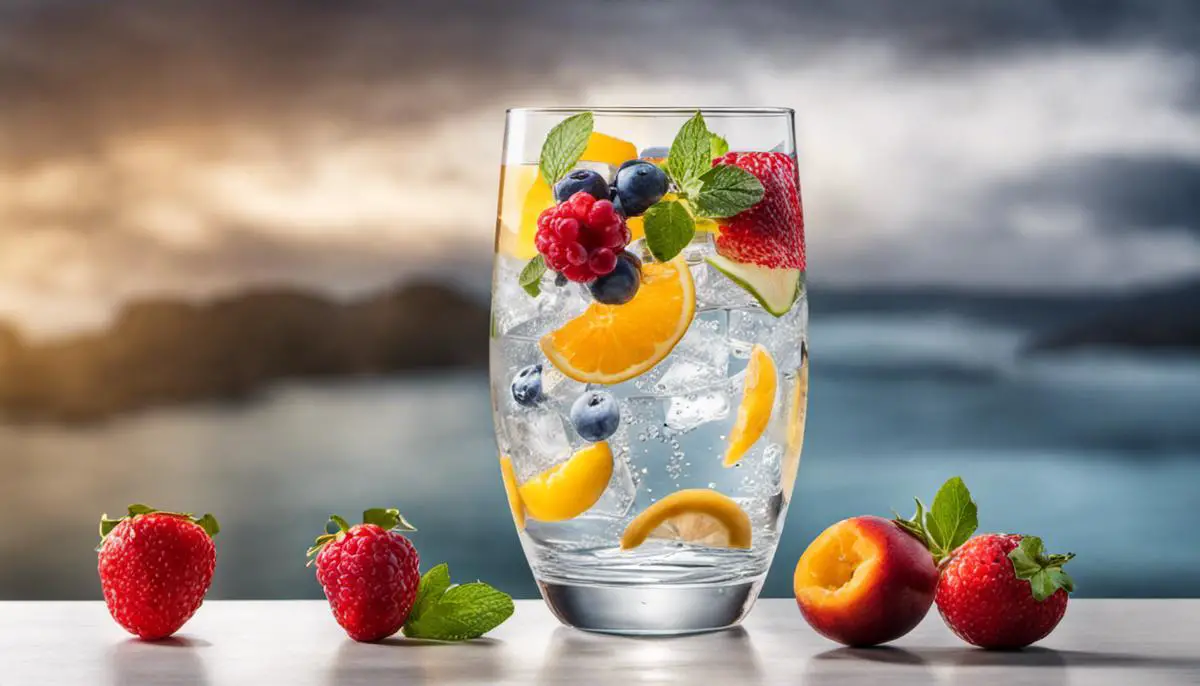Water, being the most vital substance for human life, has a profound impact on our overall health and well-being. From regulating body temperature, assisting in digestion, to promoting skin health and supporting cognitive function, the importance of adequate hydration can’t be understated. But, have you ever wondered if the ‘8 glasses a day’ norm holds scientific clout? Or if drinking too much water could potentially be harmful? This insightful exploration promises to unravel the science behind hydration, debunking common myths, highlighting some undiscovered risks, and providing valuable tips for achieving optimal hydration tailored to your individual needs.
Health Benefits of Hydration
Importance of Hydration for the Body
Water plays a crucial role in maintaining overall bodily functions. One of its main roles is maintaining the body’s temperature regulation. This is done through sweat and respiration, where excessive heat is released from the body. By staying hydrated, the body can carry out this cooling function effectively, which is particularly important during exercise or in hot environments.
Lubrication of joints is another role water performs in the body. Cartilage, a part of joints which functions to prevent friction between bones, comprises about 80% of water. Adequate hydration helps to maintain this cartilage structure and can alleviate or minimize joint discomfort.
More specifically, hydration is absolutely essential for digestion and nutrient absorption. Water aids in dissolving water-soluble vitamins such as Vitamin B and C, dietary fiber, and other nutrients. In addition to helping nutrients reach where they need to go, water plays a significant role in preventing constipation by keeping bowel movements regular, which promotes better overall digestive health.
Hydration and Skin Health
Drinking at least 8 glasses of water a day also significantly benefits skin health. Adequate hydration plumps the skin, leading to a more youthful appearance, and it can also help combat dryness. More importantly, being well-hydrated helps the skin function as a protective barrier to keep out harmful microorganisms.
Cognitive Functions and Hydration
Staying hydrated has a strong influence on cognitive functions and energy levels as well. Proper hydration is linked to improved focus, alertness, and short-term memory. In contrast, dehydration can cause a range of cognitive declines, including attention deficit, impaired short-term memory, and delayed reaction time.
Energy levels are likewise influenced by hydration levels. During periods of mild dehydration, individuals may experience fatigue, reduced motivation, and heightened perceived effort. Drinking eight glasses of water a day can help ward off these effects, improving physical performance and overall vitality.
The notion of drinking a minimum of eight glasses of water per day yields numerous health advantages. Solidifying this ritual can bolster critical body functions such as digestion, preserving joint health, enhancing cognitive performance and boosting energy levels. It’s important to note that the extent of hydration required could vary from individual to individual depending on varying factors such as age, degree of physical activity and weather conditions.
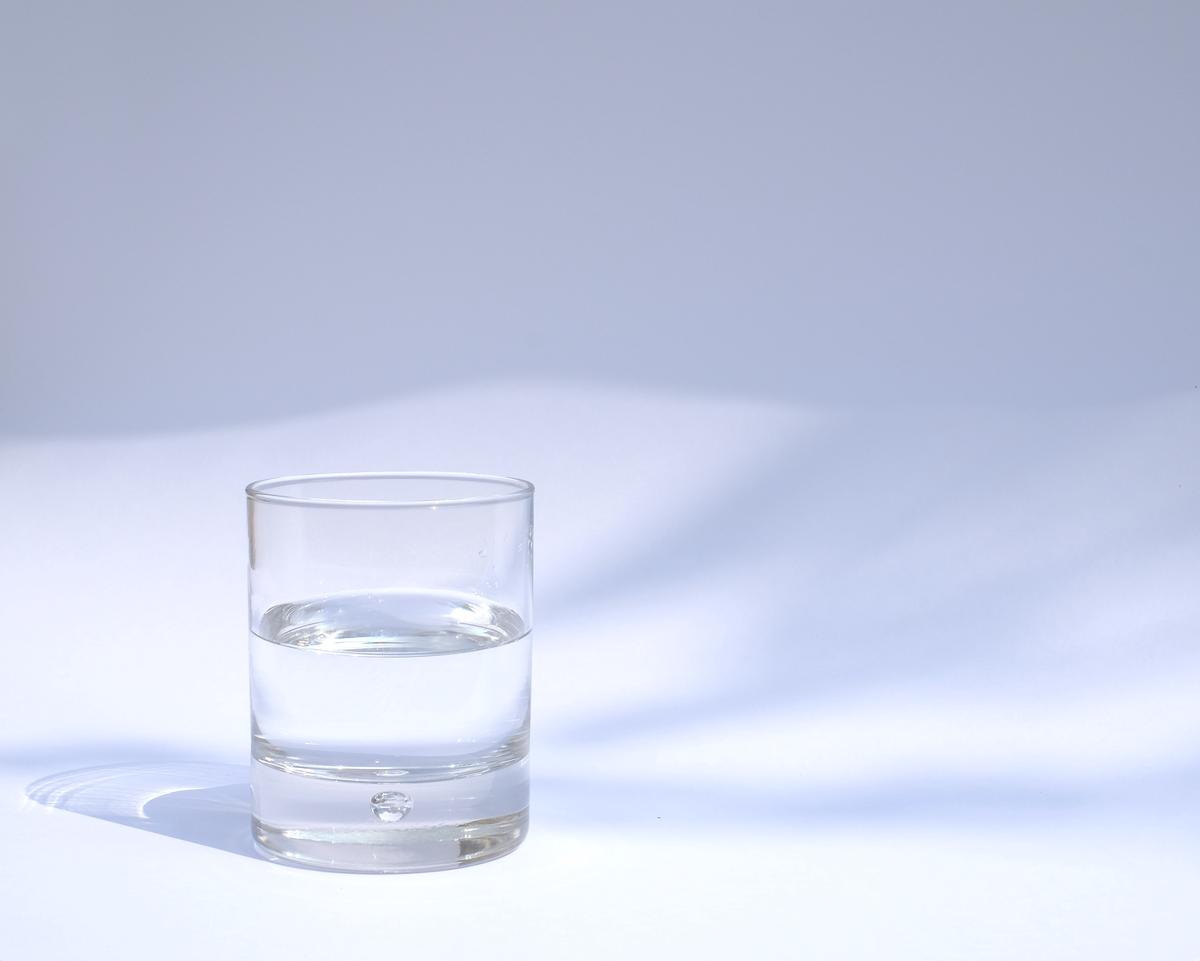
Photo by manuschwendener on Unsplash
Myths and Facts about Drinking 8 Glasses of Water
The Genesis of the 8-Glasses a Day Rule
The “8×8” principle, implying the consumption of eight 8-ounce glasses of water a day, roughly equivalent to 2 liters, doesn’t have a clear-cut provenance. There’s seemingly no concrete scientific research that either confirms or pinpoints the genesis of this suggestion. Regardless of its nebulous inception, this guideline has gained significant traction in both media and health advisories.
Scientific Findings: The Amount of Water Needed Per Day
Scientific findings often contradict the 8×8 rule, agreeing that our bodies require considerable amounts of fluids daily but differ concerning precisely how much. For instance, the National Academies of Sciences, Engineering, and Medicine recommend a daily water intake of approximately 3.7 liters (or about 13 cups) for men and 2.7 liters (roughly 9 cups) for women. However, this includes total fluid intake, which encompasses beverages like juice, tea, coffee, and even the moisture in food.
One Size Doesn’t Fit All: Varied Needs Based on Age, Gender, Lifestyle
Apart from the debate on the exact measure, there’s a unanimous agreement among scientists that water needs greatly vary from person to person, based on multiple factors. This includes age, sex, weight, health status, and level of physical activity. For instance, physically active people or those living in hot climates will naturally require more water to stay hydrated.
Hydration and Health: Understanding the Impact
Drinking ample water positively benefits the body in numerous ways. It aids digestion, helps maintain skin health, regulates body temperature, and assists in nutrient absorption. However, contrary to popular belief, existing research neither substantiates the claim that consuming surplus water aids in weight loss, nor that it nurtures superior skin.
Overhydration: When Too Much Water is Harmful
Contrary to the widespread belief that more water is always better, overhydration or water intoxication can pose serious health risks. While rare, it may cause a potentially deadly condition known as hyponatremia, where the body’s sodium levels become dangerously low.
Professional Advice: Tailoring Water Intake to Individual Needs
Given the complexity related to optimal hydration, most health professionals agree that individual needs should be the baseline for water intake. Rather than heed to general advice, consider personal factors—like climate, physical activity, overall health, and pregnancy or breastfeeding status—to guide daily hydration habits. Experts often suggest drinking when thirsty and consuming water-rich foods to supplement fluid intake.
In Conclusion
When considering the plethora of varying views and research, it becomes clear that the widely accepted recommendation to consume eight glasses of water per day is more of a broad guideline rather than a universal solution. The most feasible advice on hydration suggests tailoring water consumption to individual needs and promoting wholesome drinking habits.
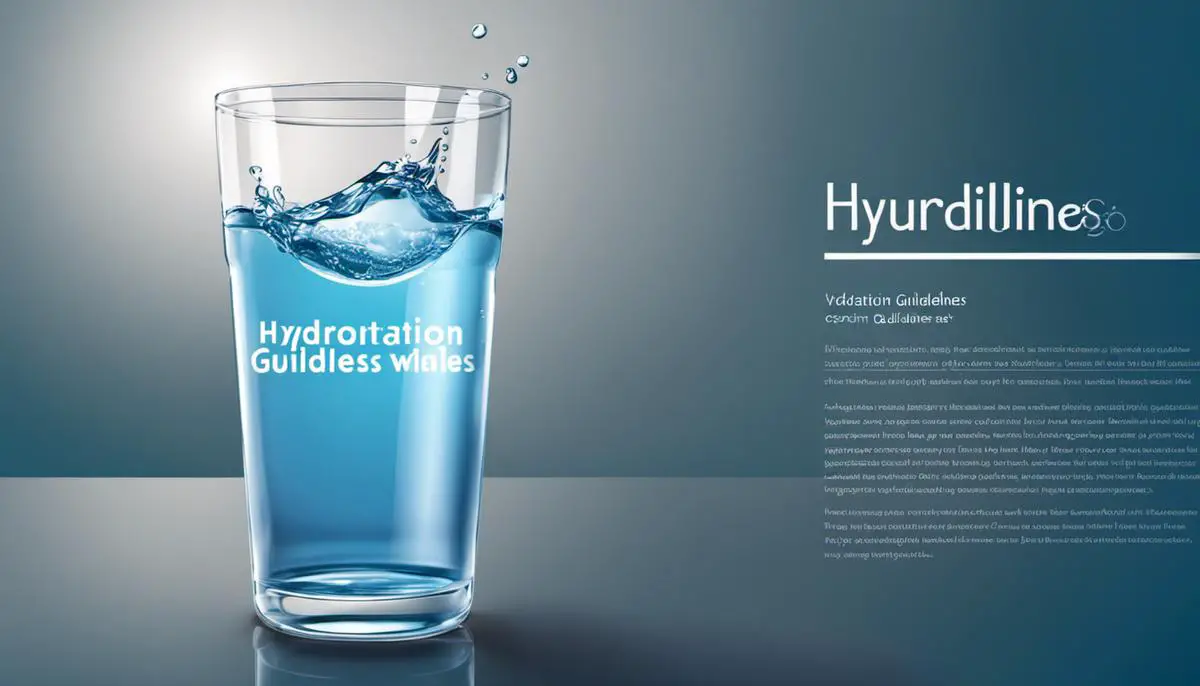
Risks and Side Effects of Over-Hydration
The Implications of Over-Hydration and Hyponatremia
While the notion of keeping our bodies well-hydrated by drinking eight glasses of water daily is familiar to many, it’s important to consider potential issues arising from an over-saturation of water in our bodies. This could lead to a condition known as hyponatremia, also referred to as water toxicity, water poisoning, or over-hydration. This condition arises when the sodium – a critical electrolyte that helps manage the hydration levels of our cells – concentration in our blood drops below normal levels. This imbalance occurs because over-hydration dilutes the sodium level, creating a disruption in critical cellular operations.
Signs Of Over-Hydration
Typical signs of over-hydration initially may include nausea, headache and disorientation or confusion, which can progress to seizures, unconsciousness, or even coma in severe cases. Other symptoms include muscle weakness or cramps, irritability, restlessness or fatigue.
Health Impacts of Over-Hydration
The range of health impacts linked to over-hydration can be broad, both in terms of severity and the systems affected. At a basic level, over-hydration can lead to an imbalance of electrolytes in the body required for the functioning of the nervous system, cardiac system, and muscles, leading to symptoms such as muscle cramps or spasms, general weakness or fatigue.
In severe cases, hyponatremia can cause cerebral edema or swelling of the brain. This potentially life-threatening condition can result in seizures, respiratory arrest, brain stem herniation, and death.
Preventing Over-Hydration
Avoiding over-hydration primarily involves maintaining a balance in fluid intake and loss. This can include drinking when thirsty rather than adhering to a rigid guideline like 8 glasses per day, especially in cooler weather or when not physically active.
Additionally, people who have kidney problems, are taking certain medications or have a medical condition that affects the body’s water level, such as heart or liver disease, should consult with their healthcare provider about how much water to drink each day.
It’s important to note
that while over-hydration is a potential risk, it is not common among the general public who consume eight glasses of water per day, especially those who are active and healthy. The body’s natural mechanisms usually maintain water balance within a healthy range. This information is especially important for athletes and those participating in endurance activities, as they are at greater risk of over-hydration due to excessive fluid intake over extended periods.
In Summary
While proper hydration is an essential aspect of maintaining good health, it’s crucial to be mindful of the potential risk of over-hydration. Beyond simply drinking when thirsty, considering personal health factors and taking medical advice into account are necessary for effective hydration management.
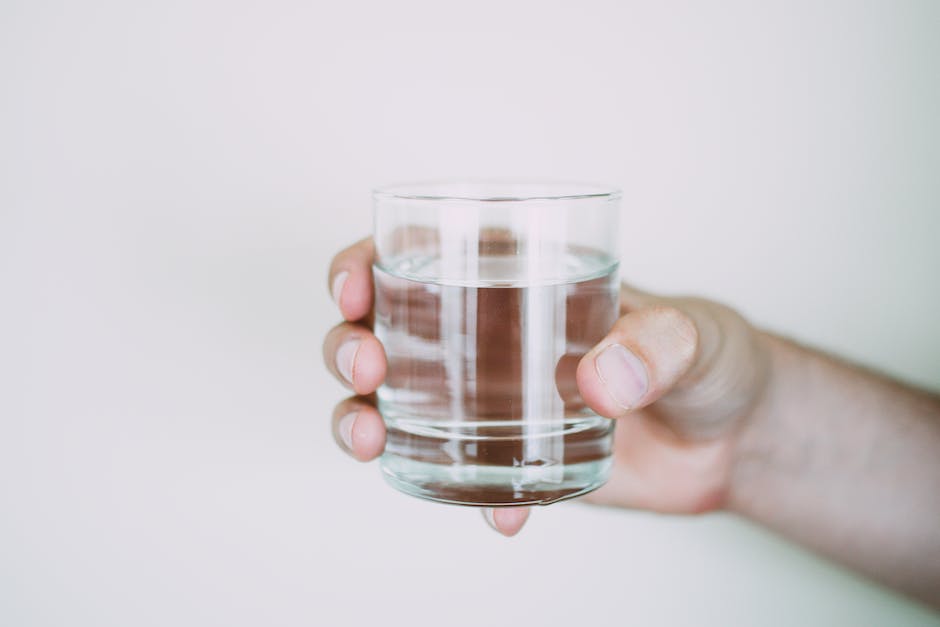
Achieving Proper Hydration: Tips and Strategies
Going Deeper: Why Hydration Matters
Keeping yourself adequately hydrated plays a vital role in supporting overall health and wellness by assisting in key bodily functions such as digestion, nutrient absorption, and body heat regulation. The commonly recommended practice of drinking eight 8-ounce glasses of water per day – widely known as the “8×8” guideline – serves as a general starting point. However, each individual’s hydration requirements can differ based on numerous factors, including age, sex, weight, level of activity, and overall climate. Scientific studies highlight that maintaining optimal hydration levels can contribute towards effective weight management, improved cognitive functioning, and enhanced physical performance.
Hydrating Beyond Plain Water: Incorporating Foods and Other Fluids into Your Hydration Strategy
While water is the quintessential source of hydration, it’s not the only one. Many foods, particularly fruits and vegetables, contribute to your daily water intake. Foods like cucumbers, watermelons, strawberries, lettuce, and broth-based soups are especially hydrating. They provide not just water, but essential vitamins and electrolytes too.
In addition, most beverages also count toward your hydration. This includes milk, juice, and even coffee and tea. However, it’s crucial to consume these in moderation due to their calorie content and, in the case of caffeinated beverages, their potential diuretic effect.
Practical Tips: Remembering to Stay Hydrated
Consistently drinking water throughout the day can be challenging, particularly if you’re not accustomed to it. Key strategies include always having a water bottle with you or on your desk, drinking a glass of water before each meal, and using tools such as apps, which can remind you to take regular sips. It may also be beneficial to consume foods high in water content as part of your meals and snacks.
Adjusting Water Intake: Considering Activity Level and Climate
Physical activity and climate have a significant impact on your hydration needs. During exercise, sweating increases to cool the body, leading to additional water loss. This makes it essential to consume more water to compensate, especially for strenuous or long-lasting activities.
Similarly, living in or visiting a hot or dry climate can increase your fluid needs due to increased perspiration. On the other hand, living in cold climates can also enhance fluid loss due to respiratory fluid loss in cold air. Therefore, it is critical to adjust water intake according to your environment and activity level, aiming to drink enough so that you rarely feel thirsty and your urine is light in color.
The Role of Individual Factors: Determining Your Unique Hydration Needs
Despite the commonly suggested “8×8” rule, individual water needs can greatly diverge based on various factors. For example, pregnant and breastfeeding women need additional fluids to support their bodies and their babies. Likewise, people dealing with certain health conditions or those who are overweight may need more water than the general guidelines suggest. The National Academies of Science, Engineering, and Medicine offers a more tailored guideline, suggesting about 3.7 liters (or 13 cups) for men and 2.7 liters (about 9 cups) for women per day, inclusive of fluids from all beverages and foods. Consulting with a healthcare professional can help to determine your unique hydration needs and develop an appropriate hydration strategy.
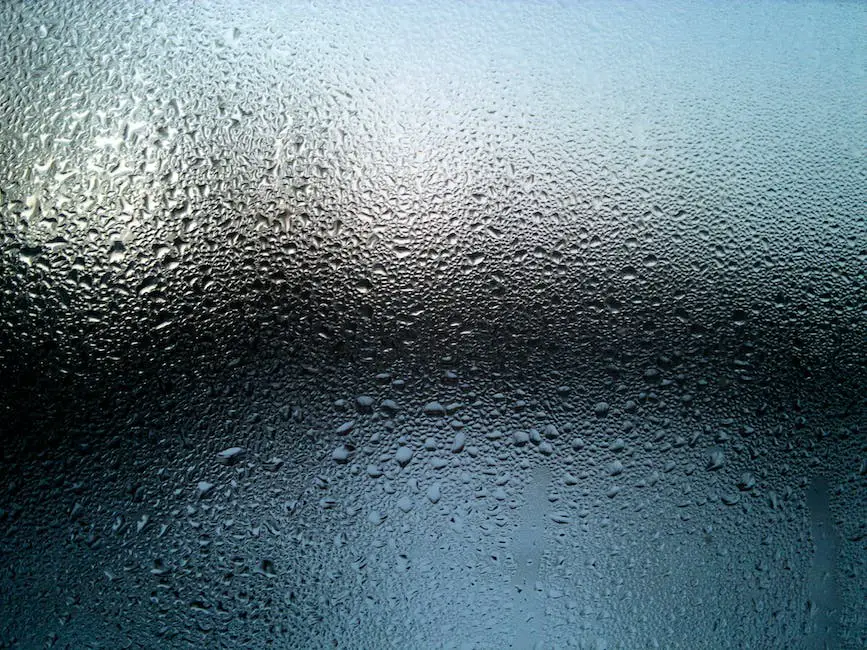
Indeed, every sip of water we take plays a crucial role in keeping us healthy, energetic, and sharp-witted. However, the ‘one-size-fits-all’ approach of 8 glasses a day might not hit the mark for everyone, as our body’s fluid needs vary greatly based on age, gender, lifestyle, and environmental factors. And much like most things in life, finding balance is key – an excess of water consumption can lead to risks like hyponatremia, which underlines the importance of gauging and meeting our individual hydration needs wisely. So as you go about your day and the days to come, remember to listen to your body, be cognizant of the signs of under or over-hydration, and strategize your hydration practices beyond just drinking plain water. Here’s to your well-hydrated journey towards holistic health!
